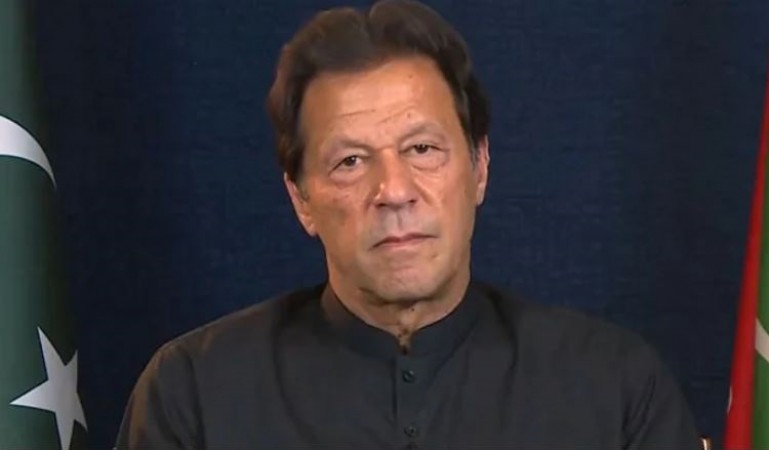
LAHORE: Imran Khan, the former prime minister of Pakistan, appeared before the Lahore High Court on Monday. The court scheduled his bail hearing for Tuesday in connection with the terrorist cases he was charged with after his detention in the Al-Qadir Trust corruption case, which led to violent protests from his supporters.
Imran Khan was accompanied by his wife Bushra Bibi, who was granted pre-arrest bail until May 23 by the honorable high court in the Al-Qadir Trust case. However, the Lahore High Court set Khan's bail hearing in the terrorism accusations brought against him following the incident on May 9 for Tuesday, May 16. A court official reportedly said that the Lahore High Court Registrar's Office objected to the arrest copies of the Supreme Court and Islamabad High Court orders not being attached.
After receiving assurances from Khan's attorney that the court's directions would be followed, Justice Safdar Saleem Shahid set May 16 for the hearing of Khan's petition. To get pre-arrest bail in the Al-Qadir Trust case, the former first lady first appeared before the LHC.
Since none of his party employees were accompanying the newlyweds, Khan and Bushra Bibi entered the LHC under heavy security. White cloths were placed over the vehicle before Bushra Bibi boarded it so she could keep her "pardah."
Khan said in a tweet on Monday that the government and military establishment intended to arrest his wife in order to degrade him. He stated that he will spend 10 years in prison due to a sedition charge. According to rumours, Khan could be charged under the Army Act for encouraging attacks on military facilities.
The leader of the Pakistan Tehreek-e-Insaf was granted interim release in six counts filed against him for setting fire to the Corps Commander's Lahore home and other violent outbursts that followed his detention last week.
After locking himself in the Islamabad High Court (IHC) building for hours out of fear of getting arrested again despite being granted bail on Friday, Khan went back to his Lahore house on Saturday.
The IHC had granted 70-year-old Khan bail, preventing the authorities from detaining him in any cases filed after May 9, and instructed him to go before the Lahore High Court on May 15 for additional relief.
The LHC granted him pre-arrest release for two weeks in the Al Qadir Trust case, in which the National Accountability Bureau detained the former cricketer-turned-politician on May 9. The Supreme Court had ruled that Khan's detention outside of the IHC's grounds was unlawful and had forwarded the case to the IHC.
The Corps Commander House in Lahore was attacked and set ablaze on May 10, and the Punjab police also filed five other FIRs against Khan for encouraging his supporters to assault and damage government structures and military sites.
For storming the senior military commander's home known as "Jinnah House" in the Lahore Cantonment last Tuesday, Khan, his deputy Shah Mahmood Qureshi, and other others have been charged with murder, terrorism, and 20 other terrible crimes.
In Pakistan, rioting that lasted until Friday resulted in multiple fatalities and the destruction of dozens of military and government facilities as a result of the arrest of Khan on Tuesday by the Pakistan Rangers at the IHC premises.
The demonstrators destroyed the home of the corps commander in Lahore and invaded the army headquarters (GHQ) in Rawalpindi for the first time in Pakistan's history.
Ten people were killed in the violent battles, police said, while 40 members of Khan's party allegedly died when security officers opened fire on them.
Over 3,500 people have been detained in Punjab province for their role in the violence that broke out after Khan's arrest, according to Punjab Inspector General Police Dr. Usman Anwar, who spoke at a press conference on Sunday. Most of them, he claimed, would be tried in anti-terrorism courts.
Khan was removed from office in April of last year after losing a vote of no confidence in him, which he said was a result of a US-led plot to assassinate him for his independent foreign policy choices on Russia, China, and Afghanistan.